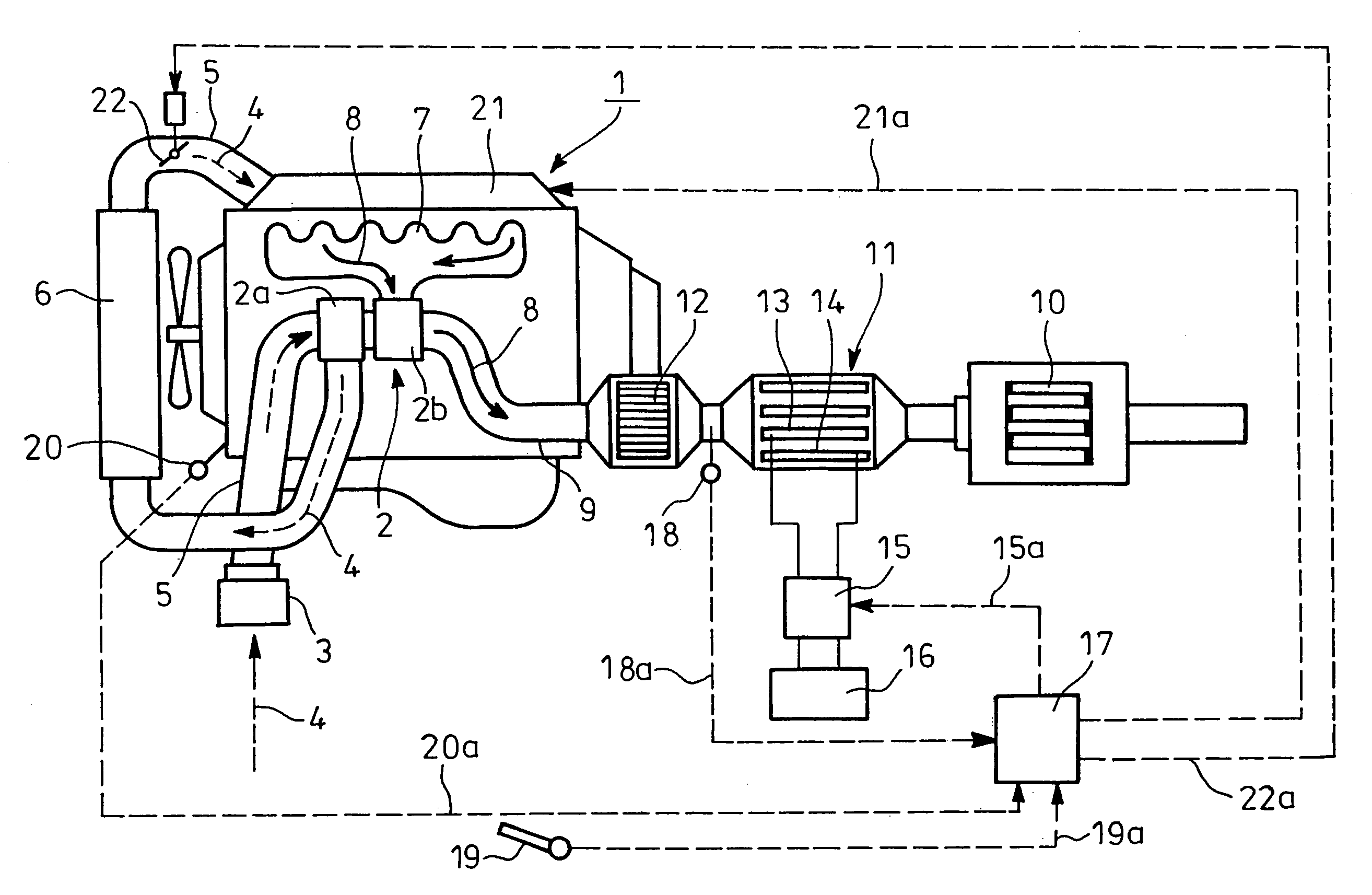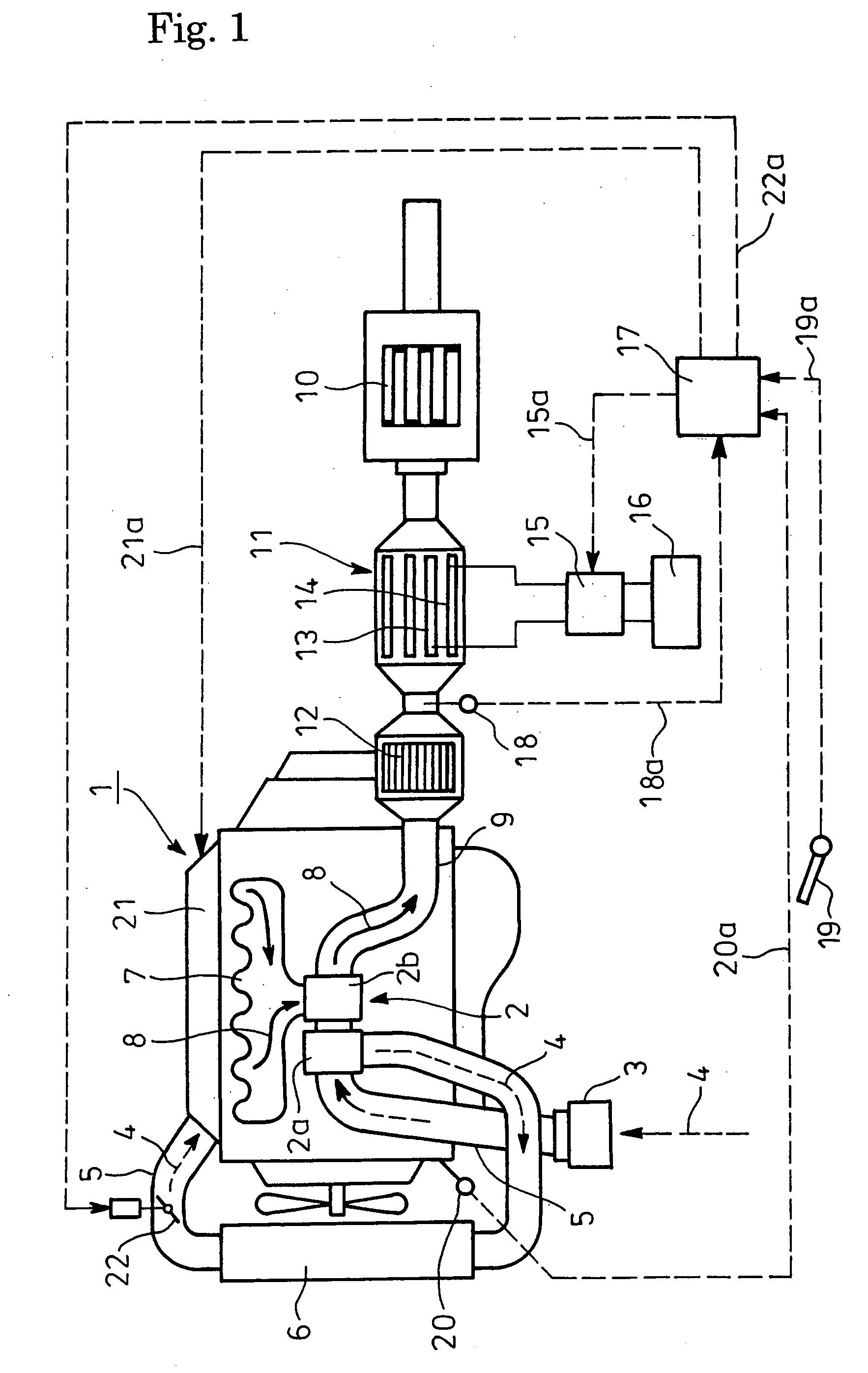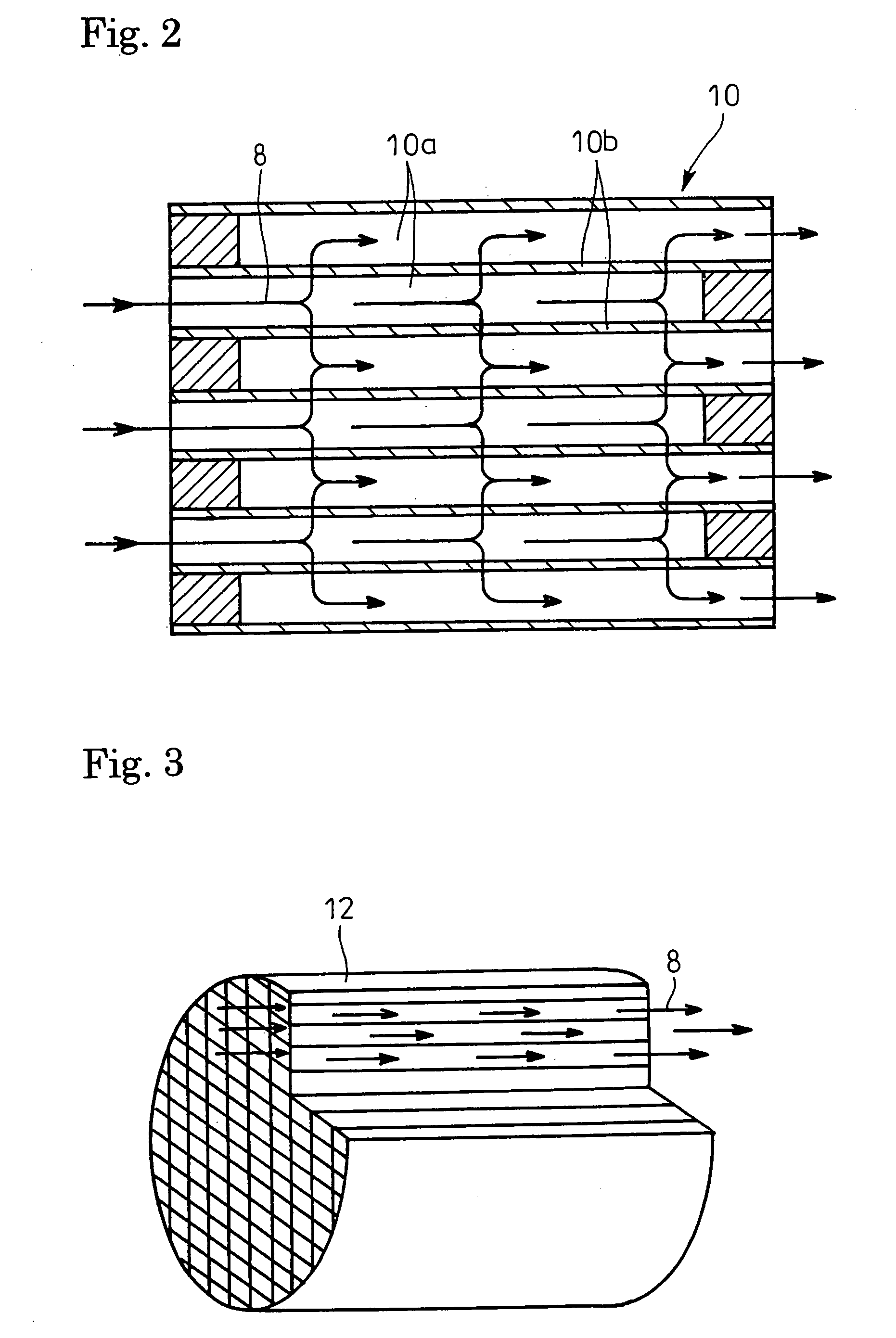Exhaust emission control device
a technology of exhaust emission control and control device, which is applied in the direction of electrical control, machines/engines, separation processes, etc., can solve the problems of insufficient exhaust emission control effect and rare chance of temperature level of exhaust from diesel engines in normal operating status, and achieve good nox reduction effect, reduce electricity consumption, and reduce the effect of regenerated
- Summary
- Abstract
- Description
- Claims
- Application Information
AI Technical Summary
Benefits of technology
Problems solved by technology
Method used
Image
Examples
Embodiment Construction
[0042]Embodiments of the invention will be described with reference to the drawings.
[0043]FIGS. 1 to 3 show an embodiment of the invention. In FIG. 1, reference numeral 1 designates a diesel engine (internal combustion engine) with a turbocharger 2. Suction air 4 sucked through an air cleaner 3 is guided via a suction pipe 5 to a compressor 2a of the turbocharger 2 so as to compress the same, the compressed suction air 4 being passed through an intercooler 6 and being distributed to respective cylinders of the diesel engine 1.
[0044]Exhaust gas 8 discharged via an exhaust manifold 7 from the respective cylinders of the diesel engine 1 is fed to a turbine 2b of the turbocharger 2; the exhaust gas 8 having driven the turbine 2b is passed through a catalyst regenerative particulate filter 10 (post-processing device) for capturing of particulates and is discharged.
[0045]As shown in FIG. 2 on an enlarged scale, the particulate filter 10 is a porous honeycomb structure made of ceramics hav...
PUM
| Property | Measurement | Unit |
|---|---|---|
| crank angle | aaaaa | aaaaa |
| exhaust temperature | aaaaa | aaaaa |
| exhaust temperature | aaaaa | aaaaa |
Abstract
Description
Claims
Application Information
 Login to View More
Login to View More - R&D
- Intellectual Property
- Life Sciences
- Materials
- Tech Scout
- Unparalleled Data Quality
- Higher Quality Content
- 60% Fewer Hallucinations
Browse by: Latest US Patents, China's latest patents, Technical Efficacy Thesaurus, Application Domain, Technology Topic, Popular Technical Reports.
© 2025 PatSnap. All rights reserved.Legal|Privacy policy|Modern Slavery Act Transparency Statement|Sitemap|About US| Contact US: help@patsnap.com



